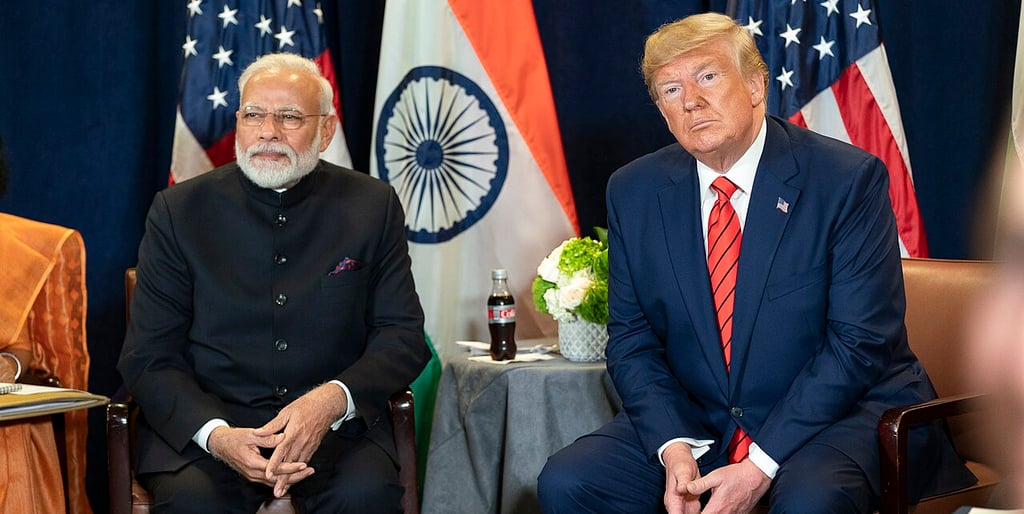Trump Threatens 25% Tariff on Indian Imports: Global Trade Faces New Shockwaves
President Donald Trump vows to impose a 25% tariff on Indian goods if re-elected, raising concerns over U.S.-India trade relations and global market stability. Read the full analysis on how this policy could reshape international trade.
Raja Awais Ali
7/30/20251 min read


Trump’s 25% Tariff Threat on India Sparks Global Trade Tensions
U.S. President Donald Trump has once again stirred the global trade arena by signaling that, if re-elected, he plans to impose a 25% import tariff on Indian goods. This announcement has ignited debate across international markets, as both the U.S. and India are major economies with significant bilateral trade relations.
Trump argued that India imposes “very high tariffs” on American products and that the U.S. “can no longer tolerate this unfairness.” According to him, the proposed tariff is essential to protect domestic industries, particularly the manufacturing and steel sectors, which he claims are being undercut by foreign imports.
So far, the Indian government has not issued an official response. However, trade experts warn that if such a policy is implemented, it could lead to serious strain in U.S.-India trade ties. The two nations currently engage in annual trade worth over $190 billion, covering sectors such as information technology, pharmaceuticals, textiles, and agriculture.
If the tariff is enforced, American companies could face higher costs for goods imported from India, which would likely affect end consumers. On the other hand, Indian exporters—especially small and medium-sized enterprises that depend heavily on the U.S. market—could suffer major setbacks.
Economic analysts suggest this move might be more of a campaign strategy than a confirmed policy, as Trump has long championed an “America First” approach. Still, should this become reality, the ripple effects could go beyond India and significantly disrupt the global trading system.
This situation reflects the growing instability in global economic and political relations. As the world attempts to recover economically, such aggressive trade policies could have long-term implications. The focus now shifts to how India might prepare for this challenge—and what impact the upcoming U.S. elections could have on international trade dynamics.